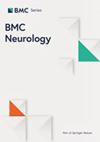PRIME-NL 研究:在动态环境中评估针对帕金森病患者的复杂医疗干预措施
IF 2.2
3区 医学
Q3 CLINICAL NEUROLOGY
引用次数: 0
摘要
自 2021 年起,一种针对帕金森患者的创新型综合护理模式(PRIME 帕金森)在荷兰的部分地区逐步实施。与此同时,还启动了对该模式的前瞻性评估(PRIME-NL 研究),时间跨度为实施前一年(基线)和实施期间。最初的研究方案公布后,COVID-19 危机将 PRIME 帕金森病护理模式的全面实施推迟了两年,并阻碍了研究参与者的招募。为了描述由于这些事态发展而对研究方案进行的方法调整。我们比较了实施 PRIME 帕金森病护理的地区(创新地区)与荷兰其他地区(常规护理地区)的各种结果。我们使用了荷兰几乎所有帕金森患者的医疗报销数据,并对具有代表性的984名帕金森患者、566名护理人员和192名医疗专业人员进行了年度问卷调查。自原始方案发布以来,我们不得不对方法进行了四项重大调整。首先,我们将评估期延长了两年。其次,我们纳入了新护理模式实施阶段的年度过程测量。第三,我们将中期结果实时迭代反馈给相关利益方。第四,我们更新了统计分析计划。这篇手稿透明地展示了评估研究的设计和分析是如何在一个动态的环境中(包括 COVID-19 危机的爆发)进行调整以控制外部影响的。我们的解决方案可作为在动态环境中评估其他复杂医疗干预措施的模板。本文章由计算机程序翻译,如有差异,请以英文原文为准。
The PRIME-NL study: evaluating a complex healthcare intervention for people with Parkinson’s disease in a dynamic environment
An innovative, integrative care model for people with Parkinson (PRIME Parkinson) has gradually been implemented in a selected region of the Netherlands since 2021. A prospective evaluation of this model (PRIME-NL study) was initiated in parallel, spanning the year prior to implementation (baseline) and the implementation period. Following publication of the original study protocol, the COVID-19 crisis delayed implementation of the full PRIME Parkinson care model by two years and hampered the recruitment of study participants. To describe which methodological adjustments were made to the study protocol because of these developments. We compare various outcomes between a region where PRIME Parkinson care was implemented (innovation region) versus the rest of the Netherlands (usual care region). We use healthcare claims data of virtually all people with Parkinson in the Netherlands and annual questionnaires in a representative subsample of 984 people with Parkinson, 566 caregivers and 192 healthcare professionals. Four major methodological adjustments had to be made since publication of the original protocol. First, we extended the evaluation period by two years. Second, we incorporated annual process measures of the stage of implementation of the new care model. Third, we introduced a real-time iterative feedback loop of interim results to relevant stakeholders. Fourth, we updated the statistical analysis plan. This manuscript provides transparency in how the design and analyses of the evaluation study had to be adapted to control for external influences in a dynamic environment, including eruption of the COVID-19 crisis. Our solutions could serve as a template for evaluating other complex healthcare interventions in a dynamic environment.
求助全文
通过发布文献求助,成功后即可免费获取论文全文。
去求助
来源期刊

BMC Neurology
医学-临床神经学
CiteScore
4.20
自引率
0.00%
发文量
428
审稿时长
3-8 weeks
期刊介绍:
BMC Neurology is an open access, peer-reviewed journal that considers articles on all aspects of the prevention, diagnosis and management of neurological disorders, as well as related molecular genetics, pathophysiology, and epidemiology.
 求助内容:
求助内容: 应助结果提醒方式:
应助结果提醒方式:


